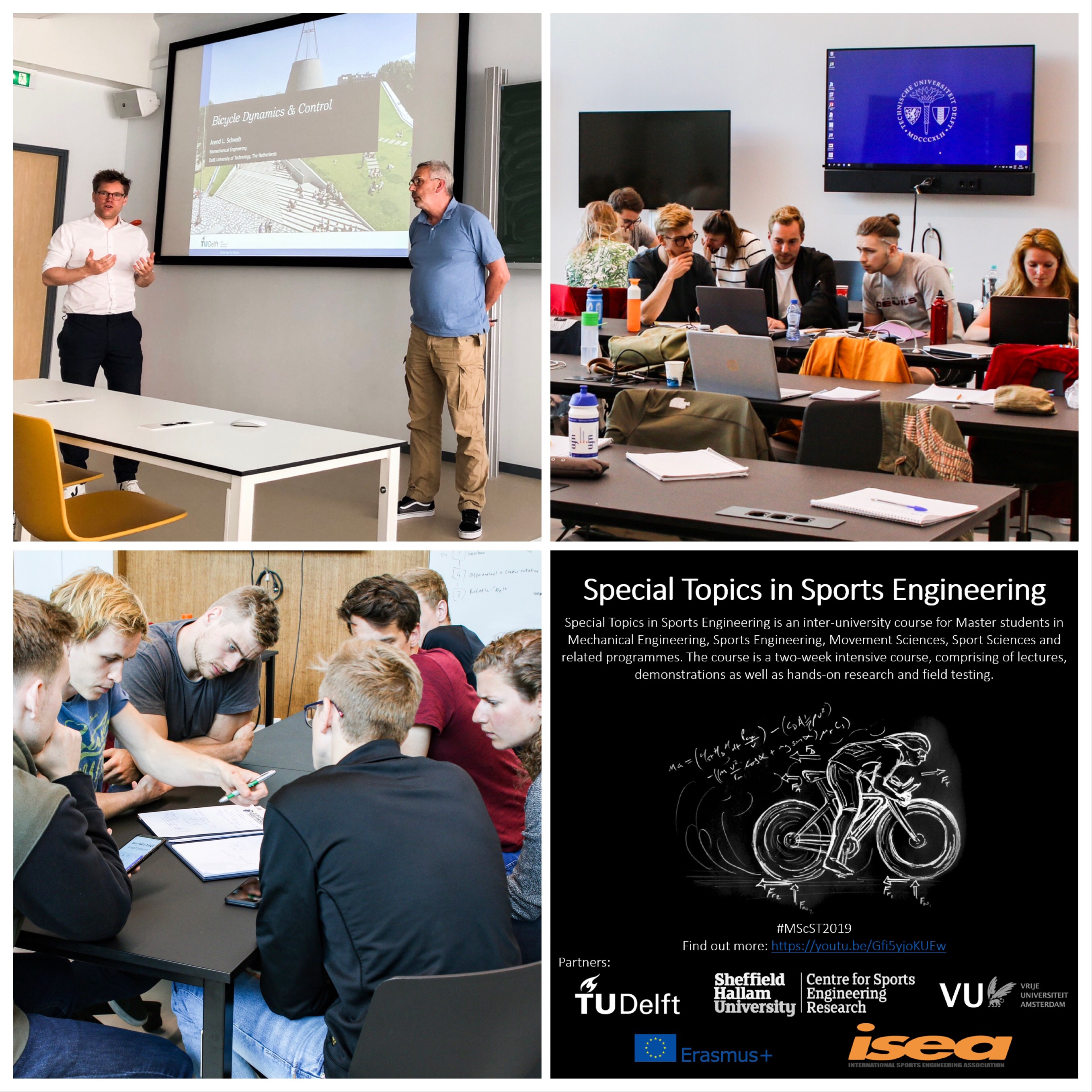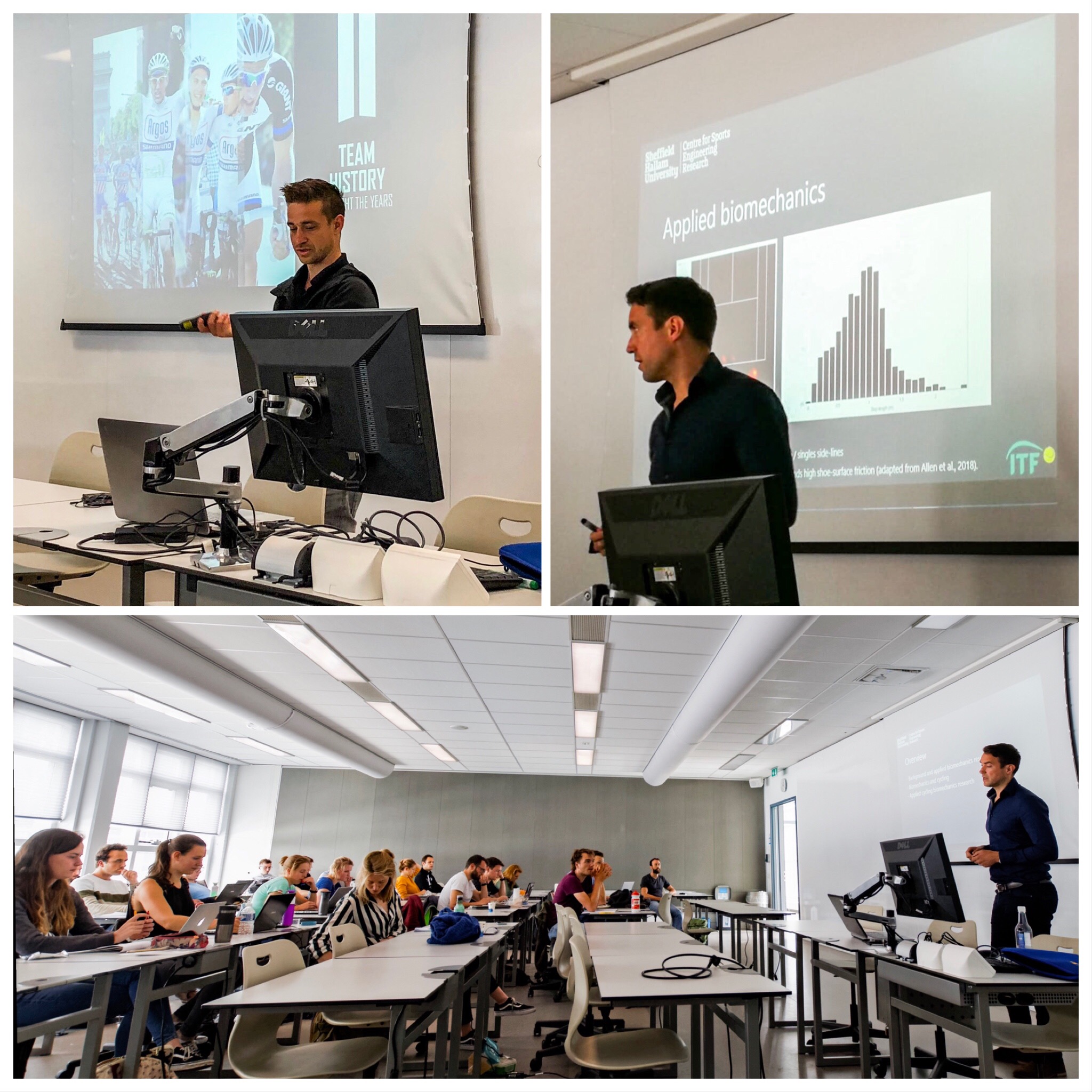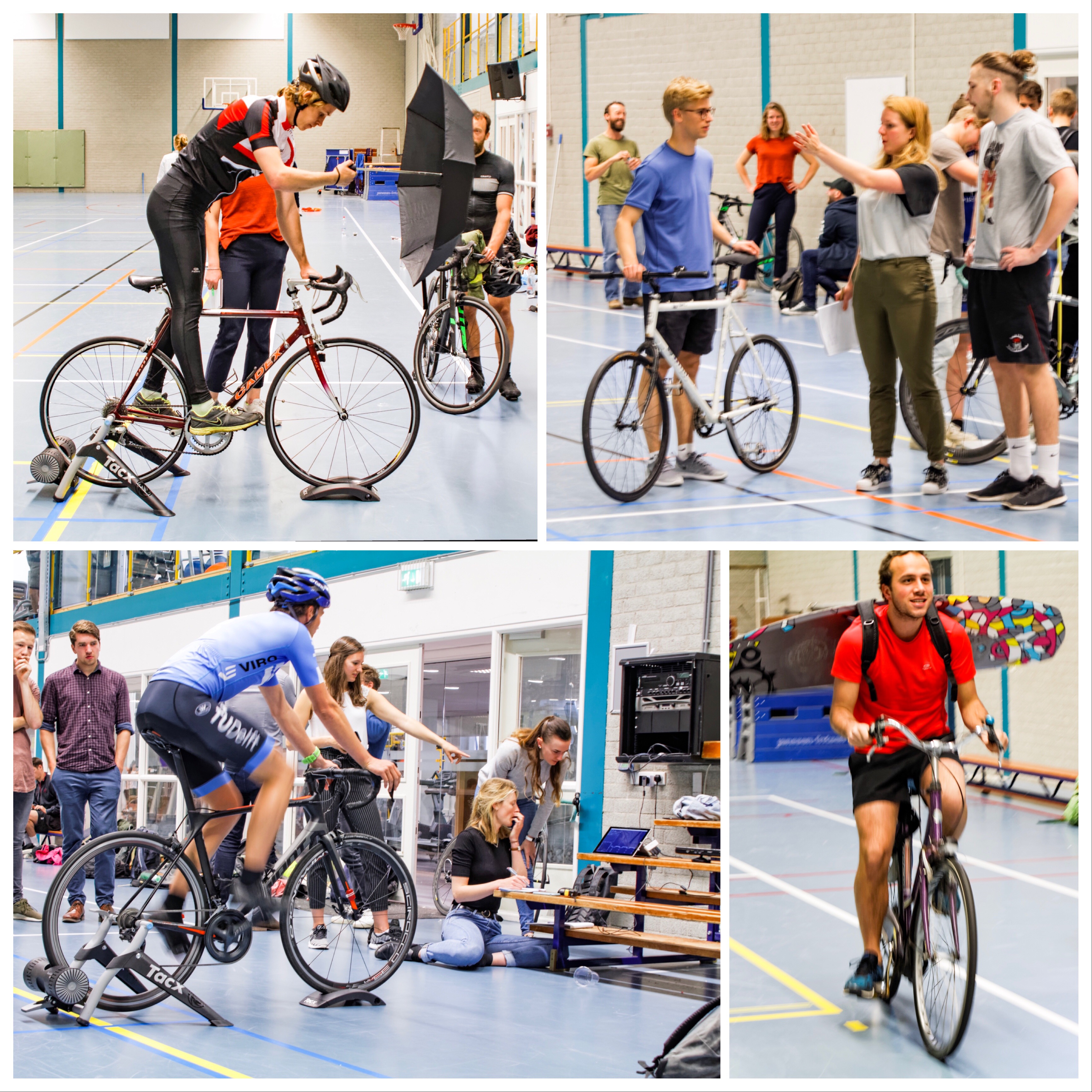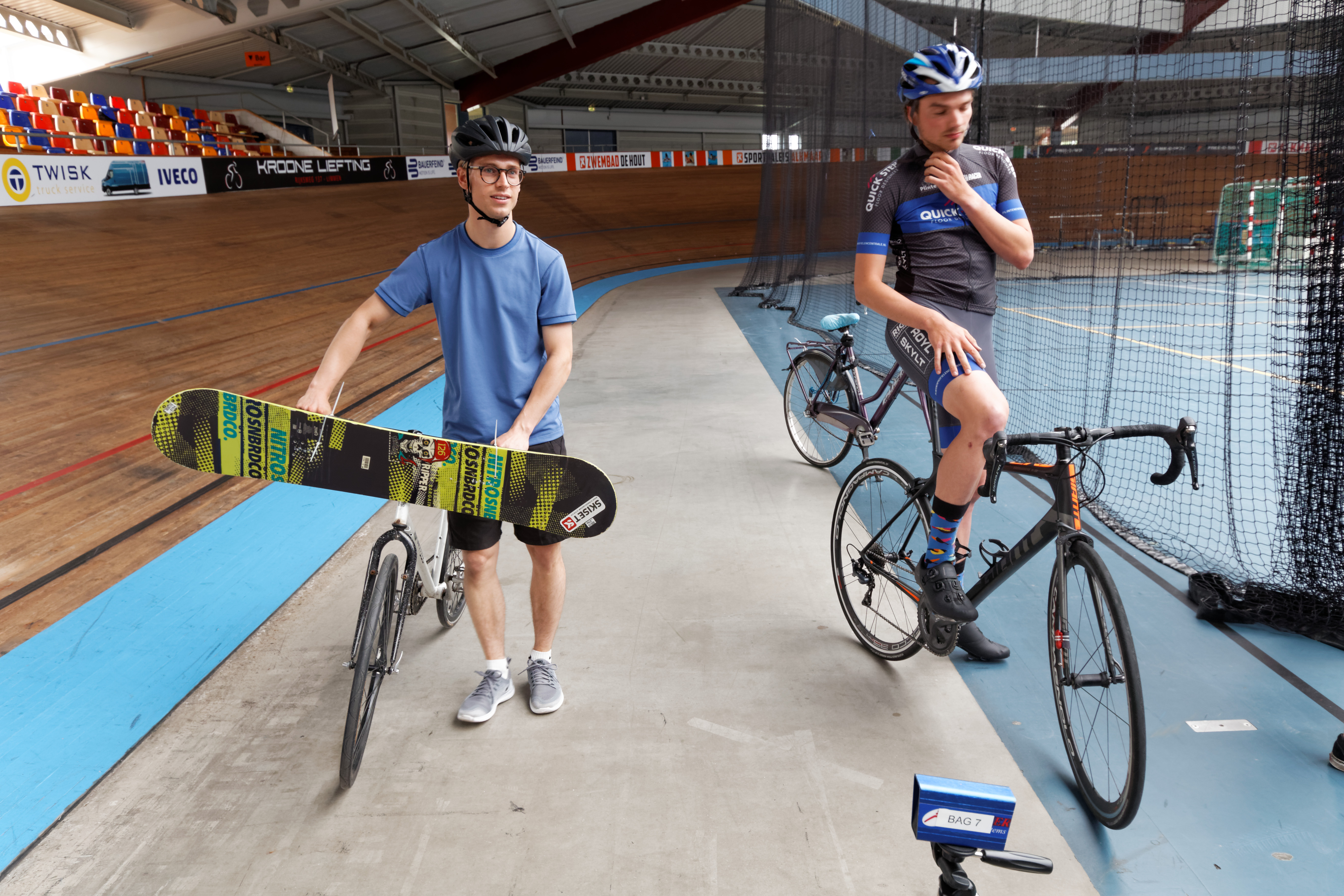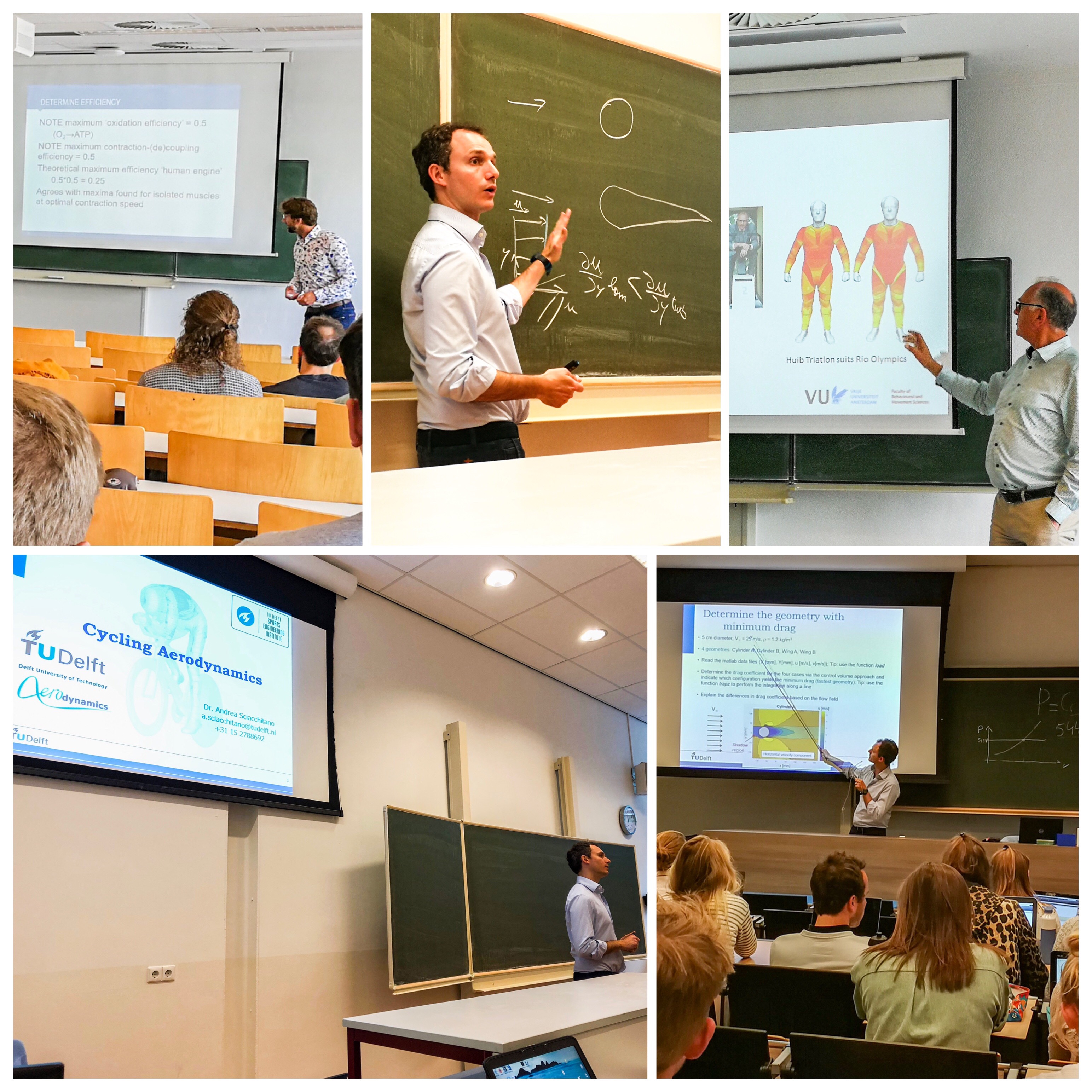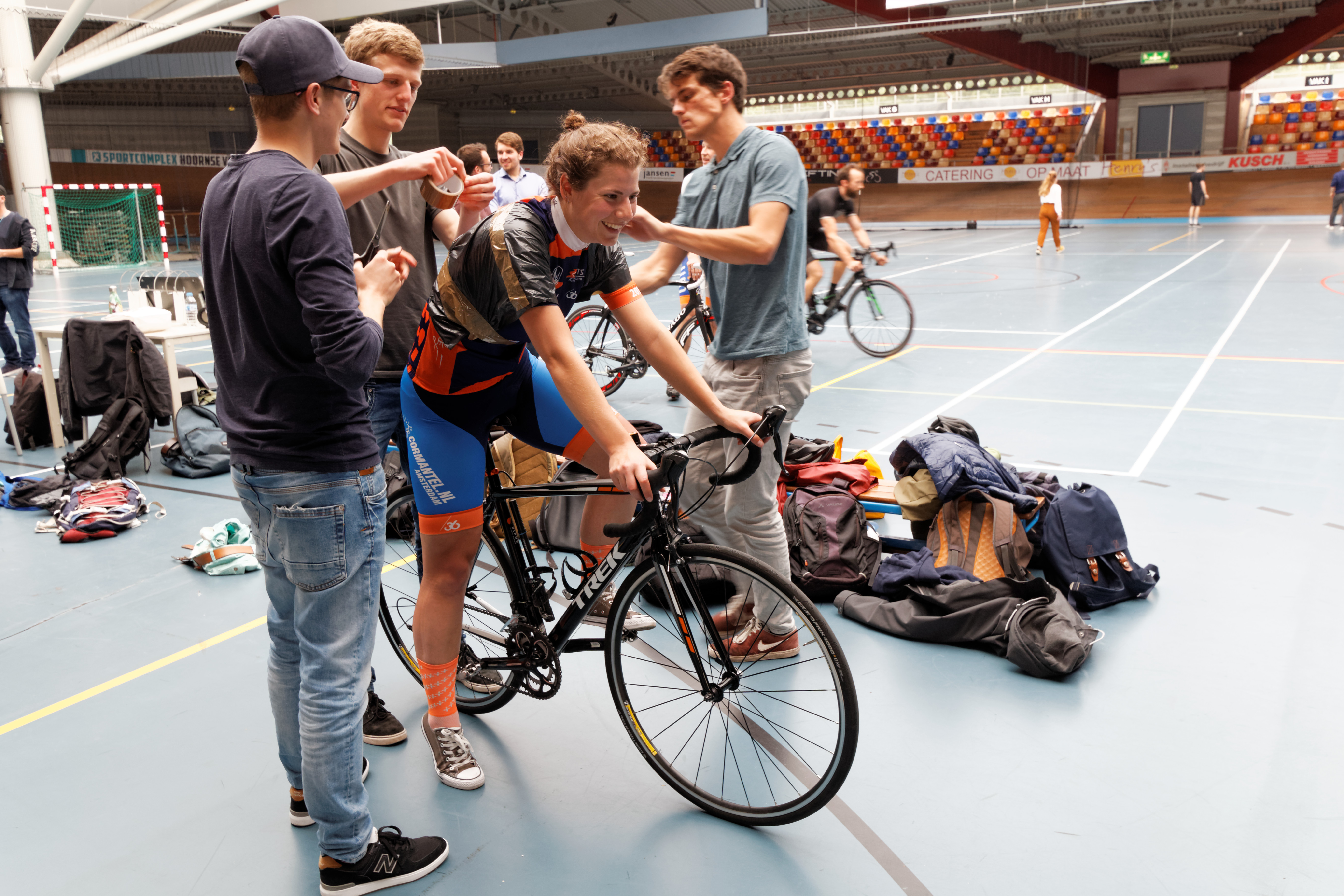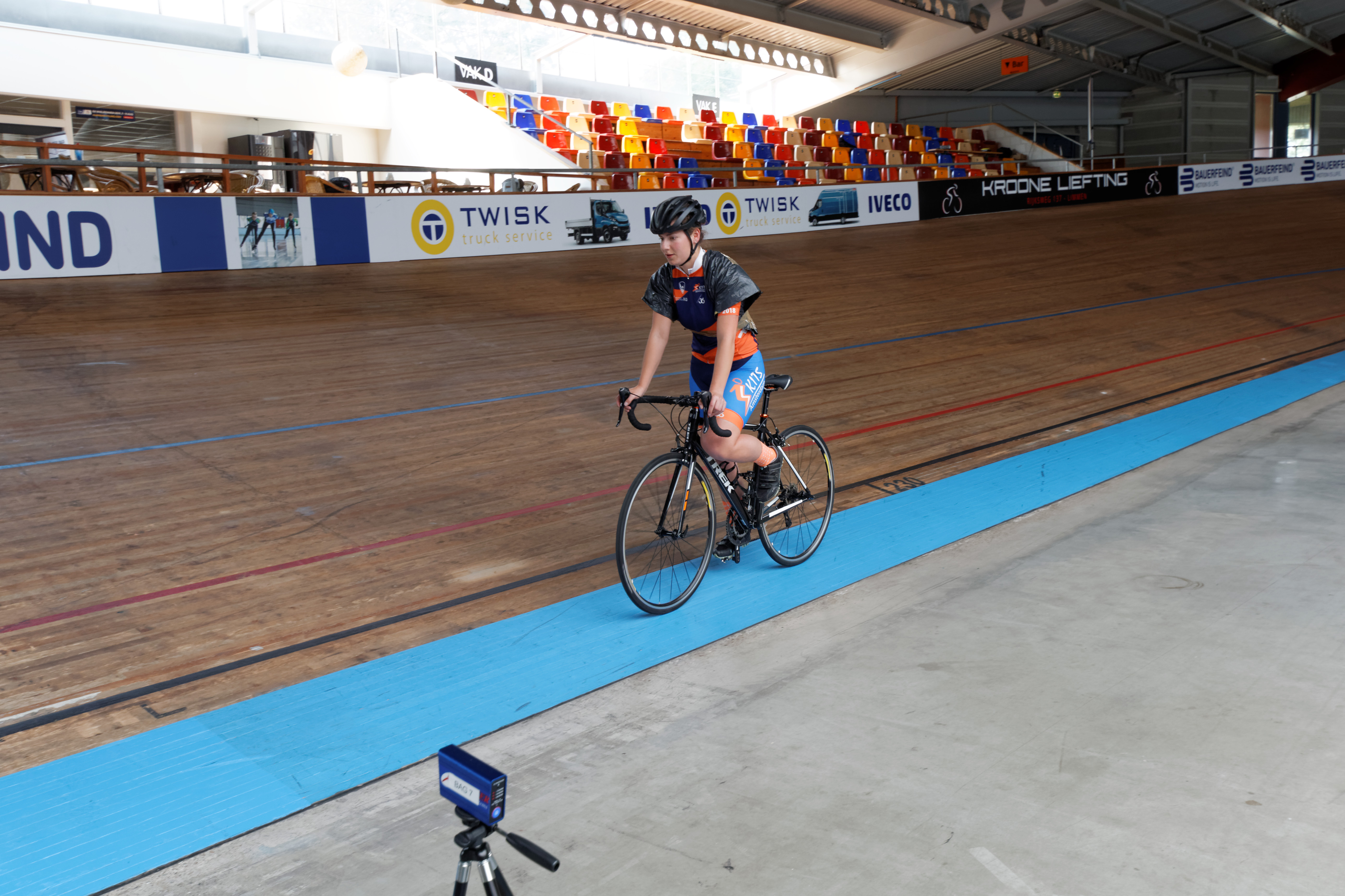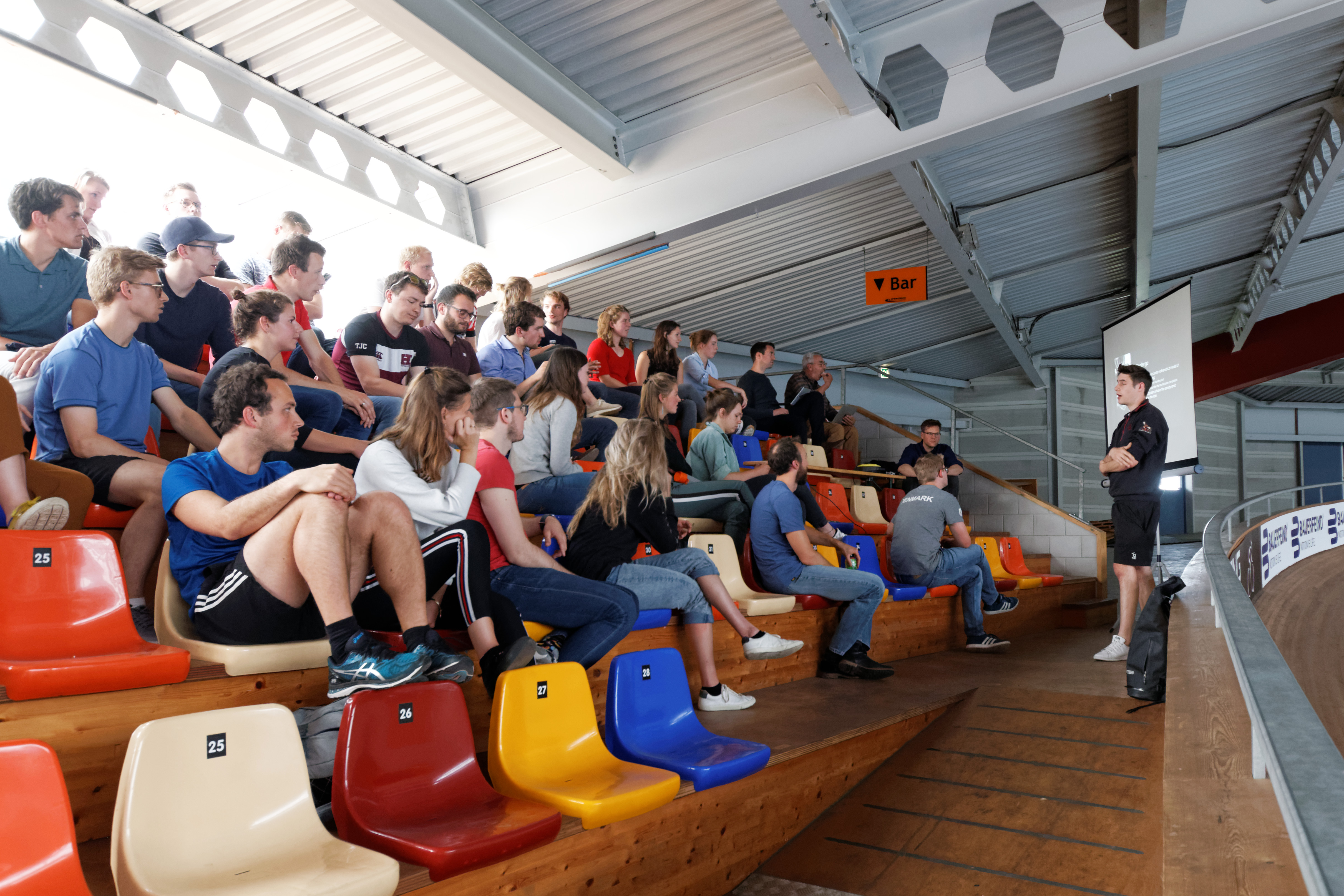Nick Hamilton
Engaging Students and Wider Public With Sports Engineering Through Social Media
This grant supported the attendance and activity of students at the 2019 Special Topics in Sports Engineering course, held at Delft Technical University, as a vehicle to engage the participating students and wider general public in sports engineering. Through attendance in this course the students were exposed to the global sports engineering community network and the activities facilitated the expansion of the international network.
In total 8 students from the MSc Sports Engineering course at Sheffield Hallam University attended the two-week course which is delivered collaboratively between TU Delft, Sheffield Hallam University (SHU), and VU Amsterdam. Working in interdisciplinary teams the students from the collaborating universities completed an engineering challenge based around a theme relevant to sports engineering.
The students were challenged to create a predictive model of a track cyclist, with the students having to predict how quickly a cyclist could complete an acceleration lap from a standing start, and then how far the cyclist would travel if they were to coast to standstill. The accuracy of the models was assessed in a live test at the Sportpaleis Alkmaar Velodrome, with each team responsible for sourcing a bicycle and cyclist for the test. To support the creation of their models, students attended a series of lectures, laboratories, seminars and workshops covering topics including; predictive modelling, bicycle stability and rolling resistance, aerodynamics, cycling biomechanics, thermo physiology, and power endurance in sport.
Particular highlights included; a tour of the TU Delft wind tunnels where the Dutch cycling team just happened to be testing their new track bike for Tokyo 2020; and a talk by Team Sunweb on the preparation, and performance prediction, of their cyclists in time trial events. Students conducted VO2max and Wingate tests on their team cyclists at the VU Amsterdam physiology labs to understand their power output, and an experimental test day was held at the TU Delft sports hall.
The final models were assessed in a live test at the Sportpaleis Alkmaar Velodrome. Prior to taking to the track student teams presented their predictions for the first lap time and the coasting distance travelled. Students were not permitted to coach or instruct their cyclists during the event and instead had to wait for the results that were measured and scrutinised by participating staff. The winning team posted a first lap time within 0.01 seconds of their predicted time and implemented a Monte Carlo simulation to assess the likelihood of their predictions. Their reward was the coveted Special Topics Course golden bicycle bell.
Throughout the course students were encouraged to be involved in documenting and sharing their experiences. Prior to commencement of the event the SHU students received pre-course training and advice on the effective use of social media from the SHU ASPA social media engagement team. Specific social media platforms were chosen for specific target audiences including Instagram (secondary/higher education), Twitter (general public), and LinkedIn (professionals/business). Existing social media channels and networks within the Centre for Sports Engineering Research, and Sheffield Hallam University were used for this activity, with media released on a daily basis.
Additional to this activity student testimonials of partaking in the course were collated, and blog articles of the experience have been created and hosted on the engineeringsport.co.uk engineering and physics blog. A further blog article concerning the technical details of the challenge is in production to be released late summer. The experiences and details of this visit and activity are also to be shared at the SHU SPARC research seminar series later this year, to highlight the benefits of partaking in such experiences.
Through participating in this course and the associated activities the students, not only had a lot of fun, but gained valuable experience of working with engineers, sports scientists, and academics from a variety of backgrounds and cultures. This was evident in the collated written testimonies, sample extracts of which can be seen below;
“Overall, I found this course to be challenging and interesting, but most importantly fun. The course allowed for new skills to be developed and knowledge to be learned, and then to be applied to the task at hand. To come up with a model and test it against an actual experiment was really interesting and enjoyable.”
“It was really nice to work with different universities and I think that is the best element of this course. In this way you learn a lot and it is also fun to learn about the other ‘cultures’ of the different universities.”
“These two-weeks went by so fast because each day was a new adventure, each day meant new friends and new experiences. All these aspects combined with the fact that we had to do the thing that we truly love is amazing.“
“To conclude I learned a lot the last two weeks, made new friends from different universities and became really enthusiastic about sports engineering and all its different topics. Thank you for offering me this possibility!”
SHU students participation in this activity was only possible due to the kind ISEA assistance in meeting the shortfall in associated cost, after student contribution, and SHU contribution. As such the awarded grant application was used in full to support the travel costs associated with this activity.
